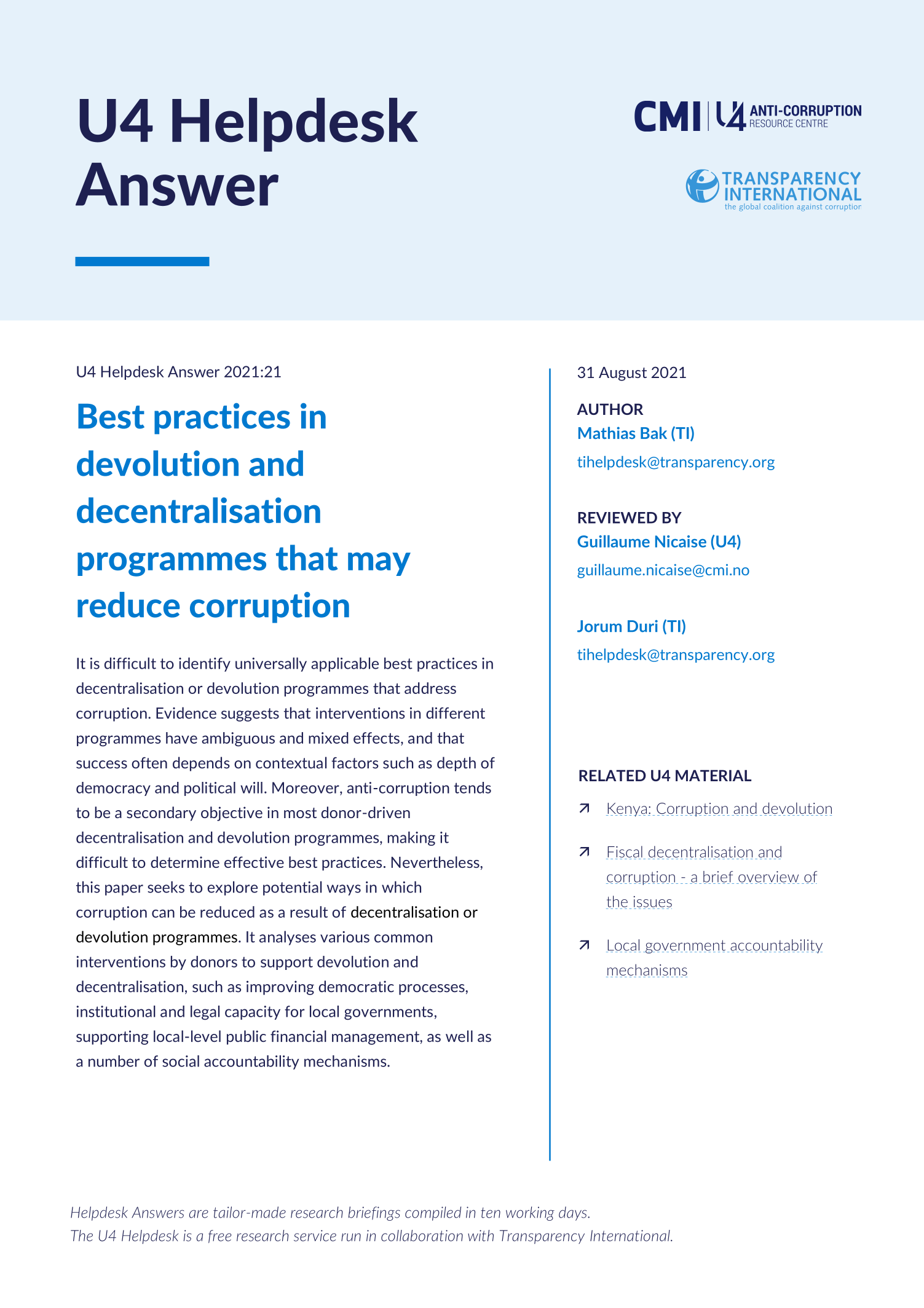Main points
- There is no clear-cut evidence between the relationship between corruption and decentralisation or devolution.
- Evidence for what works to limit corruption in decentralisation and devolution processes appear equally ambiguous and context-specific.
- That said, there are a number of tools that can be applied to support anti-corruption in decentralisation and devolution processes.
- These include mechanisms that seek to create institutional change from above as well as interventions that contribute to accountable governance from below.



